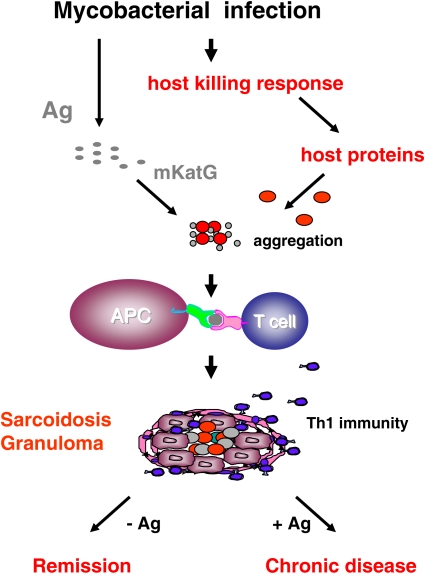Figure 1.
Hypothetical model of a mycobacterial etiology of sarcoidosis. An occult mycobacterial infection results in the release of mycobacterial antigens (Ag) that induce an effective, mycobacteriocidal host response. In sarcoidosis, host proteins induced as part of this response aggregate with remnant mKatG proteins to form a poorly soluble nidus for granuloma formation and depots of microbial antigens. Macrophages and dendritic cells (antigen-presenting cells [APC]), activated directly by mKatG-host protein aggregates, produce the helper T-cell type 1 (Th1)–promoting cytokines IL-12, IL-18, and tumor necrosis factor. Antigen-specific Th1 responses orchestrate the complex process of epithelioid granuloma formation and accompanying inflammation. Removal of the inciting antigenic aggregates combined with immunosuppressive effects from transforming growth factor-β results in granuloma regression and disease remission. Failure to remove mKatG–host protein aggregates, possibly with the induction of autoimmunity, results in persistent inflammation and chronic disease.

